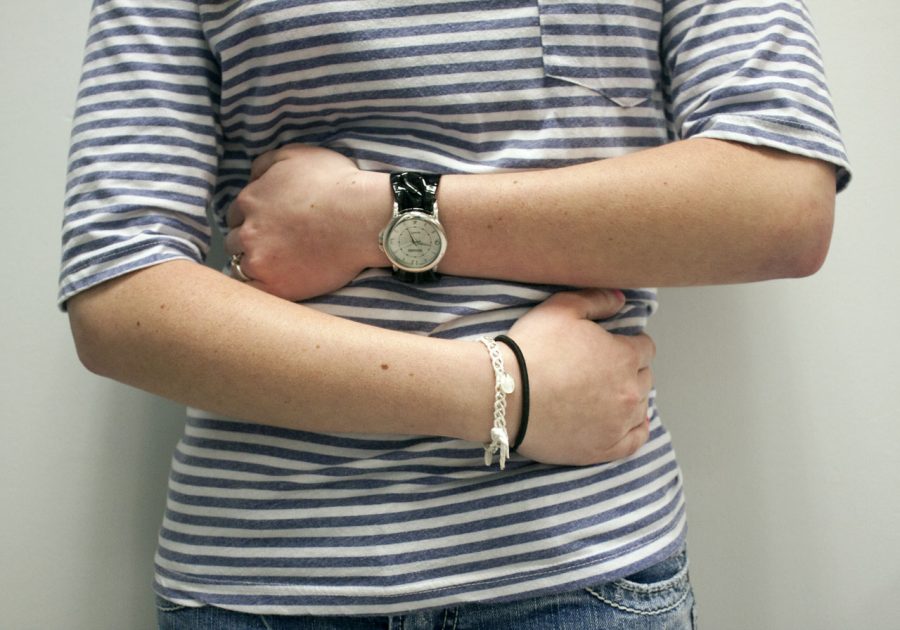Majority of women engage in ‘fat talk’
April 28, 2011
Friend 1: “Look at this fat.”
Friend 2: “Oh my God. There’s no fat there. Look at mine.”
Friend 1: “That’s nothing. Mine is bulging.”
Friend 2: “It is NOT. But I must have gained 10 pounds.”
Friend 1: “Don’t be ridiculous. You’re a size 2.”
Friend 2: “Yeah, well, maybe I should hit the gym.”
Spend any time around tween, teen or college-aged girls and it won’t take long before one young woman says to her friend, “Ugh, I feel so fat.”
Now, a new study confirms that the overwhelming majority-93 percent-of college-aged women engages in “fat talk.”
Most of them believe it makes them feel better about their bodies, but the study results suggest the opposite: the more college women talk about how fat they are, the more likely they are to be dissatisfied with their bodies.
Whether they’re getting ready to go out, browsing Facebook photos or primping in the bathroom mirror, the conversation between college women and their friends inevitably will turn to one thing: their flab.
In the research, published in the March issue of Psychology of Women Quarterly, scientists rounded up 186 female undergraduates ages 18 to 23.
The women took an online survey, answering questions about the frequency and meaning of fat talk, their level of satisfaction with their bodies and the factors influencing their body ideals.
“I was surprised at how common it was for college women to engage in fat talk and the ease with which the women wrote realistic fat-talk scripts,” said Rachel Salk, a doctoral student in clinical psychology at the University of Wisconsin-Madison and the study’s lead author. “Most women were clearly not at a loss for typical responses in a fat-talk conversation.”
The research suggests that much of “fat talk” really is a form of seeking reassurance about appearance.
But while fat talk offers comfort and connection with other women, several participants remarked that they want their friends to tell them they’re not fat, but they don’t really believe it when they hear it.
Women look for some validation, and that’s why they are bashing their bodies.
Holly Johnson, a senior English major at UNA, confesses that she has participated in “fat talk” around her friends.
“It does provide some comfort knowing that you’re not alone in feeling this way about your body, and it gives me some perspective on myself,” said Johnson.
In some sense, fat talk can make you feel connected, and in other ways, disconnected, Johnson said.
Prior research has suggested that it’s something that’s done almost exclusively by young women who are at a normal weight or below, perhaps because someone carrying a few extra pounds would likely be reluctant to call attention to it.
While it may seem like healthy bonding for friends to vent about their body dissatisfaction, “The body ideal for women is so unattainable that thinking and talking about body shape and size tends to leave women feeling worse, not better,” said Johnson. “Fat talk likely results in more body monitoring, which women are already spending too much time doing.”
Even the most physically fit females may have temporary weight anxiety-from eating poorly, not exercising or feeling bloated.
But for women to have fewer “feeling fat” moments, they should redirect their body-related thoughts to feeling healthy and treating their bodies with care and respect, Johnson suggested.
“Sometimes it’s hard to remember society’s idea of beauty isn’t real beauty,” said Johnson. “Girls who get stuck in that way of thinking need to remember they are worth it the way they are, no matter what the latest magazine advertises.”












